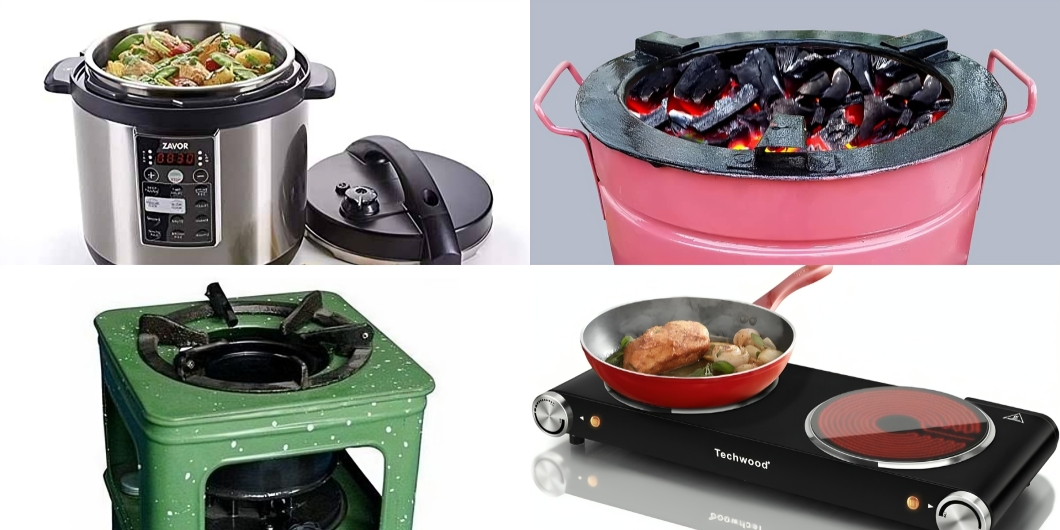The cost of cooking gas in Nigeria is hitting the roof as many households are struggling to refill their cylinders. For some, the price increase has made cooking with gas a luxury, forcing families to seek and explore more affordable, sustainable options for preparing meals.
While gas remains clean, easy to maintain and more convenient, these alternative cooking methods can help you reduce costs without sacrificing your daily meals.
Here are five affordable cooking options Nigerians should turn to:
1. Remodelled Charcoal Stove (Coal Pot)
The remodelled and classic charcoal stove, popularly referred to as a coal pot, is making a giant comeback.
A charcoal stove is cheap, reliable, and widely available. A small bag of charcoal can last several days, depending on how often you cook.
There are good modern versions, such as the “Save80,” which is an energy-efficient stove designed to use less charcoal while cooking faster, making it an excellent low-cost alternative.
RELATED: 5 reasons cooking gas is scarce and expensive in Nigeria right now
2. Electric Hot Plate or Induction Cooker
With improved electricity supply in some parts of the country, electric hot plates are gaining popularity among people living in urban areas.
They are energy-efficient and safer than traditional gas cylinders. Although electricity tariffs are rising, it’s best you connect your induction cooker to a power inverter or solar system for more reliability.
RELATED: Here Are 7 Ways to Make Your Cooking Gas Last Longer
3. Firewood Stove (Eco-friendly options)
For families in rural or semi-urban areas, firewood stoves remain a go-to. Modern eco-stoves are gradually replacing the traditional three-stone setup, which requires a large amount of wood, with a design that produces less smoke. The modern firewood stove consumes less wood, produces less smoke and cooks faster.
4. Kerosene Stove
Before gas became the ‘celeb,’ almost every Nigerian household owned this ‘OG’ kerosene stove.
Although kerosene prices have also increased and are unstable, it remains more affordable in smaller quantities, especially for low-income earners and for those who cook occasionally. The “Abacha blue flame” and wick-type stoves are popular models that can still efficiently and quickly get the job done.
RELATED: Is your gas cooker flame green? It could be a warning sign
5. Energy-Saving Electric Pots (Multi-Cookers & Rice Cookers)
If you’re looking for modern, efficient alternatives, electric cooking pots and multi-cookers are worth considering. Electric cooking pots and multi-cookers can be referred to as ‘small but mighty’. They are small, fast, and use less power compared to a gas burner.
Within 20–30 minutes of power, you can cook rice, beans, noodles, or stew. Additionally, many of them are portable and most suitable for students, singles, and working-class Nigerians who want convenience and speed on a budget.
RELATED: The 6 Air Fryers That Make Cooking (Almost) Too Easy
As gas prices remain unpredictable and unstable, Nigerians are proving once again that necessity breeds creativity.
From charcoal and kerosene to electric hot plates and firewood stoves, there’s always a way to keep cooking methods affordable and reliable. Whether you’re in a rural or urban area, the goal is to cook smart, save more, and stay safe.
>

